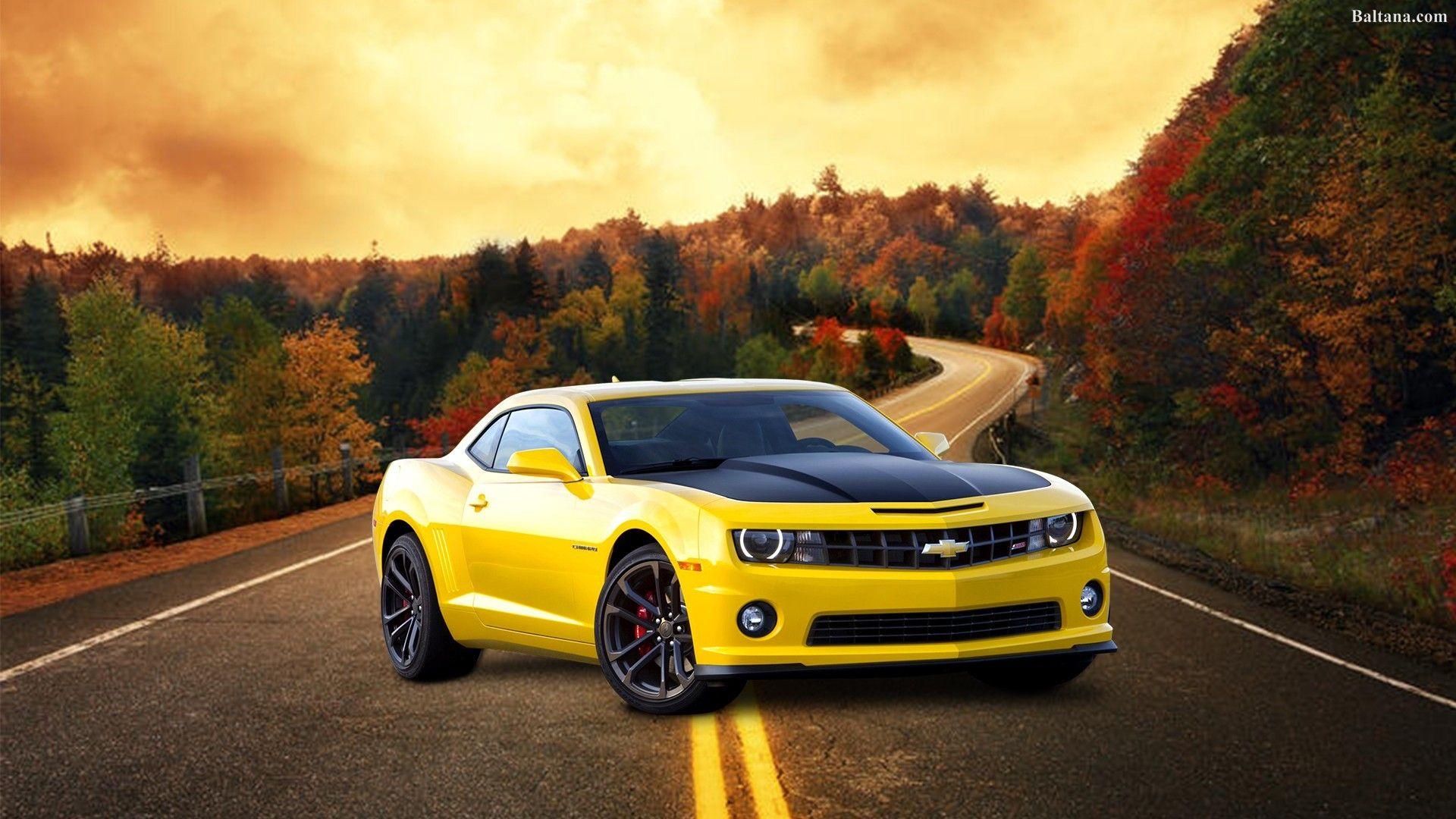Chevrolet Cab and Chassis Trucks for Sale: Your Ultimate Guide to Commercial Versatility

Chevrolet Cab and Chassis Trucks for Sale: Your Ultimate Guide to Commercial Versatility
In the demanding world of commercial operations, generic solutions rarely cut it. Businesses require vehicles that are not just robust and reliable, but also highly adaptable to their unique needs. This is precisely where Chevrolet cab and chassis trucks shine. Far more than just a standard pickup, these vehicles serve as the blank canvas upon which a myriad of specialized commercial tools are built, offering unparalleled versatility and performance for a diverse range of industries.
This comprehensive guide will delve into everything you need to know about Chevrolet cab and chassis trucks for sale, from understanding their fundamental design to choosing the perfect model for your business, exploring their benefits, and navigating the purchasing process.
What Are Chevrolet Cab and Chassis Trucks?
At its core, a Chevrolet cab and chassis truck is a heavy-duty vehicle sold without a factory-installed rear body. What you get is a complete front end – including the cab (driver’s compartment), engine, transmission, and front axle – seamlessly integrated with a robust, open frame that extends to the rear. This design is intentionally minimalist, allowing commercial upfitters to attach a wide array of specialized bodies, transforming the truck into a purpose-built machine for specific tasks.
These trucks are the backbone of countless businesses, from construction and landscaping to utility services, delivery, and emergency response. Unlike standard pickup trucks, which come with a fixed bed, cab and chassis models are engineered from the ground up for commercial applications, boasting heavier-duty frames, suspension systems, and powertrain components designed to handle continuous heavy loads and rigorous duty cycles.
The Unmatched Benefits of Choosing Chevrolet Cab and Chassis
Opting for a Chevrolet cab and chassis truck offers a multitude of advantages for businesses looking to maximize efficiency and tailor their fleet to precise operational requirements:
-
Unparalleled Customization: This is the primary benefit. With an open frame, you can install virtually any type of body your business requires:
- Service Bodies: For plumbers, electricians, HVAC technicians, and general contractors, offering secure storage and organized tool access.
- Flatbeds: Ideal for transporting large, unwieldy items like lumber, pipes, or equipment.
- Dump Bodies: Essential for construction, landscaping, and waste management.
- Box Trucks/Dry Vans: Perfect for delivery services, moving companies, and general cargo transport.
- Refrigerated Units: For food and beverage delivery or pharmaceutical transport.
- Wreckers/Tow Trucks: For roadside assistance and vehicle recovery.
- Utility/Bucket Trucks: For power lines, telecommunications, and sign installation.
- And many more specialized applications.
-
Robust Durability and Reliability: Chevrolet cab and chassis trucks are built to withstand the rigors of commercial use. Their heavy-duty components, reinforced frames, and robust powertrains are designed for longevity, minimizing downtime and maximizing productivity.
-
Powerful Performance: Chevrolet offers a range of potent gasoline and Duramax diesel engine options across its chassis cab lineup. These engines provide ample horsepower and, crucially, massive torque for hauling heavy loads, climbing steep grades, and powering auxiliary equipment. High gross vehicle weight ratings (GVWRs) and impressive payload capacities mean you can carry more with fewer trips.
-
Advanced Technology and Safety: Modern Chevrolet chassis cabs come equipped with advanced infotainment systems, connectivity features, and a suite of active safety technologies designed to protect drivers and cargo, even in demanding commercial environments.
-
Extensive Dealer and Service Network: Chevrolet boasts a vast network of dealerships and service centers across North America, ensuring that parts and expert maintenance are readily available, reducing the impact of unexpected issues on your operations.
-
Strong Resale Value: Well-maintained commercial trucks, especially those from reputable brands like Chevrolet, tend to hold their value well, providing a good return on investment when it’s time to upgrade or sell.
Key Chevrolet Cab and Chassis Models
Chevrolet offers a diverse range of cab and chassis models, each designed to meet different levels of commercial demand:
-
Chevrolet Silverado HD Chassis Cab (2500HD, 3500HD, 4500HD, 5500HD, 6500HD):
These are the workhorses of the lineup, extending the legendary Silverado HD platform into dedicated commercial chassis. As you move up the numbers (e.g., from 3500HD to 6500HD), you gain increased GVWR, heavier-duty components, and greater payload and towing capabilities. They offer various cab configurations (Regular, Double, Crew Cab) and multiple wheelbase options to accommodate different upfit lengths. Engine choices typically include powerful gasoline V8s and the renowned Duramax turbo-diesel. -
Chevrolet Low Cab Forward (LCF) Series (3500, 4500, 5500):
These unique trucks, often recognized by their "cab-over-engine" design, are perfect for urban environments and applications where maneuverability and visibility are paramount. Their compact footprint, tight turning radius, and panoramic windshield make navigating congested streets and tight loading docks much easier. The LCF series also offers excellent engine access for simplified maintenance. They are commonly upfitted as box trucks, refrigerated trucks, landscape trucks, and car carriers.
Choosing the Right Chevrolet Cab and Chassis Truck
Selecting the ideal Chevrolet cab and chassis requires careful consideration of your specific business needs. Here’s a step-by-step guide:
- Define Your Upfit: Start with the end in mind. What type of body will you be installing? This will dictate the required Gross Vehicle Weight Rating (GVWR), Cab-to-Axle (CA) length, and potentially frame dimensions.
- Determine Payload and Towing Needs: Calculate the maximum weight of your cargo, tools, and equipment, plus the weight of the upfit itself. This will determine the necessary payload capacity. If you’ll be towing trailers, consider the Gross Combined Vehicle Weight Rating (GCWR).
- Select the Right GVWR Class: Based on your payload, choose the appropriate Silverado HD Chassis Cab (e.g., 3500HD, 4500HD, 6500HD) or LCF model. Remember that vehicles over a certain GVWR (typically 10,000 lbs for Class 3, or 26,001 lbs for Class 7/8) may require a Commercial Driver’s License (CDL).
- Engine and Powertrain:
- Gasoline: Often more affordable upfront, good for lighter loads, and applications with frequent idling.
- Diesel: Higher torque, better fuel economy for heavy loads and long distances, greater longevity, and preferred for PTO (Power Take-Off) applications.
- Cab Configuration:
- Regular Cab: Most cost-effective, maximizes wheelbase for longer upfits.
- Double Cab/Crew Cab: For businesses needing to transport more personnel.
- Wheelbase and Cab-to-Axle (CA) Length: This is crucial. The CA dimension must match the specifications of your intended upfit body. Incorrect CA can lead to improper weight distribution or make the upfit impossible.
- Special Features: Consider options like Power Take-Off (PTO) provisions for hydraulic equipment, auxiliary switches, heavy-duty alternators, and trailer brake controllers.
- New vs. Used:
- New: Full warranty, latest technology, customizable from the factory.
- Used: Lower upfront cost, quicker availability. Requires thorough inspection and service history review.
Practical Advice for Purchasing
- Partner with an Upfitter Early: Before you buy the chassis, talk to the upfitter who will be installing your body. They can advise on the exact chassis specifications needed, preventing costly mistakes. Many commercial Chevrolet dealers have relationships with upfitters or can recommend reputable ones.
- Leverage GM’s Body Builder Guides: General Motors provides detailed body builder guides online. These resources are invaluable for upfitters and owners, offering precise dimensions, weight distribution guidelines, and electrical schematics.
- Consider Total Cost of Ownership (TCO): Look beyond the initial purchase price. Factor in fuel efficiency, maintenance costs, expected lifespan, and potential resale value. A more expensive diesel might save you money in the long run through better fuel economy and durability.
- Inspect Thoroughly (for Used Trucks): If buying used, have a qualified mechanic perform a pre-purchase inspection. Pay close attention to the frame (look for bends or cracks), engine, transmission, and suspension. Check for rust, especially on frame rails.
- Understand Commercial Financing: Explore financing and leasing options tailored for commercial vehicles. These often have different terms and benefits compared to personal auto loans.
Challenges and Solutions
- Upfit Compatibility:
- Challenge: Ensuring the chassis you buy perfectly matches the upfit you need.
- Solution: Consult with your upfitter and use GM’s detailed body builder specifications before purchasing the chassis.
- Initial Investment:
- Challenge: Commercial trucks, especially new ones, represent a significant investment.
- Solution: Focus on the long-term ROI. A well-chosen, durable truck reduces operational costs, increases efficiency, and directly contributes to your bottom line. Explore commercial financing and leasing.
- Maintenance & Downtime:
- Challenge: Keeping a commercial vehicle on the road and minimizing lost revenue during service.
- Solution: Adhere strictly to manufacturer-recommended maintenance schedules. Utilize Chevrolet’s extensive dealer network for prompt service. Consider fleet management software for preventative maintenance tracking.
Chevrolet Cab and Chassis Trucks for Sale: Estimated Price Guide
Please note that the prices below are estimated starting MSRPs for new models and are subject to significant variation based on trim level, engine choice, optional features, market conditions, regional differences, and dealer incentives. Used prices vary even more widely based on year, mileage, condition, and upfit (if any). Upfit body costs are NOT included in these estimates and can range from a few thousand to tens of thousands of dollars, depending on complexity.
| Model Series | Estimated GVWR Range (lbs) | Typical Engine Options | Estimated New Starting MSRP Range (USD) | Key Benefits |
|---|---|---|---|---|
| Silverado 3500HD | 10,000 – 14,000 | Gas V8, Duramax Diesel | $43,000 – $55,000+ | Entry-level HD, versatile, good for lighter duty |
| Silverado 4500HD | 16,000 – 16,500 | Duramax Diesel | $58,000 – $70,000+ | Medium-duty, robust, common for service/flatbeds |
| Silverado 5500HD | 18,000 – 19,500 | Duramax Diesel | $60,000 – $75,000+ | Heavier medium-duty, higher payload, common for dumps |
| Silverado 6500HD | 21,500 – 23,500 | Duramax Diesel | $65,000 – $80,000+ | Heavy-duty, highest payload in Silverado line |
| Low Cab Forward 3500 | 12,000 | Gas V8 | $48,000 – $55,000+ | Agile, urban-friendly, great visibility |
| Low Cab Forward 4500 | 14,500 – 16,000 | Gas V8, Diesel 4-cyl | $52,000 – $62,000+ | Popular for box trucks, city delivery |
| Low Cab Forward 5500 | 17,950 | Diesel 4-cyl | $58,000 – $68,000+ | Max payload for LCF, efficient for heavy urban loads |
Note: Prices do not include destination charges, taxes, title, license, dealer fees, or any upfit costs.
Frequently Asked Questions (FAQ) about Chevrolet Cab and Chassis Trucks
Q1: What is the main difference between a Chevrolet pickup truck and a Chevrolet cab and chassis truck?
A1: A pickup truck comes with a factory-installed bed designed for general cargo. A cab and chassis truck is sold without a bed, featuring an open frame designed specifically to accommodate various custom commercial upfit bodies (e.g., dump bodies, service bodies, box trucks) that are attached by third-party upfitters.
Q2: What types of upfits can be put on a Chevrolet chassis cab?
A2: The possibilities are vast! Common upfits include service bodies, flatbeds, dump bodies, box trucks (dry freight, refrigerated), utility bodies, wrecker bodies, landscape bodies, stake bodies, and many highly specialized applications.
Q3: Do I need a Commercial Driver’s License (CDL) to drive a Chevrolet chassis cab?
A3: It depends on the Gross Vehicle Weight Rating (GVWR) of the truck and the Gross Combined Vehicle Weight Rating (GCWR) if towing a trailer. Generally, a CDL is required for vehicles with a GVWR of 26,001 lbs or more, or if towing a trailer that puts the GCWR over 26,001 lbs and the trailer itself is over 10,000 lbs. Many Silverado 3500HD, 4500HD, and some LCF models fall below the CDL threshold, but always check local and federal regulations.
Q4: Are Chevrolet chassis cabs good for personal use?
A4: While technically possible, cab and chassis trucks are primarily designed for commercial heavy-duty use. Their ride quality, fuel economy (especially when empty), and lack of a standard bed make them less practical and comfortable for personal use compared to a conventional pickup truck.
Q5: Where can I buy a Chevrolet cab and chassis truck?
A5: You can purchase new Chevrolet cab and chassis trucks from authorized Chevrolet dealerships, particularly those with a dedicated commercial sales department. Used models can be found at commercial truck dealerships, online marketplaces, and sometimes through private sellers.
Q6: What is GVWR and why is it important?
A6: GVWR stands for Gross Vehicle Weight Rating. It’s the maximum permissible total weight of the truck, including the vehicle itself, its fuel, passengers, cargo, and any attached body or equipment. It’s crucial because exceeding the GVWR is unsafe, illegal, and can void warranties and damage the truck. Your chosen chassis cab’s GVWR must be sufficient for your intended loaded weight.
Q7: Should I choose a gasoline or diesel engine for my Chevrolet chassis cab?
A7:
- Gasoline: Often more affordable upfront, good for lighter duty, shorter hauls, or applications with frequent starts/stops and idling.
- Diesel: More expensive initially but offers superior torque for heavy loads and towing, better fuel economy over long distances, and greater durability for continuous heavy use. It’s also often preferred for applications requiring a Power Take-Off (PTO). Your specific operational needs should guide this decision.
Conclusion
Chevrolet cab and chassis trucks stand as a testament to specialized utility and unwavering performance in the commercial sector. They represent a smart investment for businesses seeking a tailored solution that can adapt to evolving operational demands. By offering robust construction, powerful engine options, and the ultimate flexibility of customization through various upfits, these vehicles empower companies to optimize their efficiency, reduce downtime, and ultimately drive their success. When you invest in a Chevrolet cab and chassis, you’re not just buying a truck; you’re acquiring a versatile foundation upon which your business can truly thrive.


